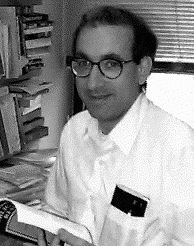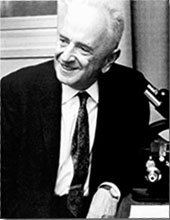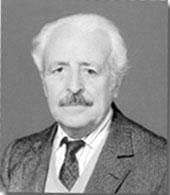 |
| François Jacob |
Numerous scientific findings in the second half of the 20th century and the current century have clearly and definitively revealed the invalidity of the theory of evolution. As stated earlier, even the world's most prominent evolutionists are well aware of this. Indeed, despite their blind devotion to their theory, they still admit that the theory faces impossible quandaries. That being so, why are some scientists so determined to support the theory, even though they know full well that it is unscientific?
As discussed in the Introduction, the reason for scientists' devotion to the theory of evolution lies in their ideology. Evolutionists do not behave like real scientists at all and persist with their ideology despite all their experiments, observations and research. The basis of their ideology is their belief in materialism, which obliges them to deny the existence of Allah. That is why, even though all the scientific data clearly and irrefutably show the existence of a sublime Creator, a Lord of all, these materialist and evolutionist scientists still deny that Allah exists. However, they make unequivocal statements in this point as well, just like they have made on all subjects, and do not hesitate to confess that all evidence points to the existence of a Creator and the flawless creation brought into being by Him, though their ideology makes it impossible for them to admit this.
Chandra Wickramasinghe is professor of applied mathematics and astronomy at Cardiff University and director of the Cardiff Centre for Astrobiology:
From my earliest training as a scientist, I was very strongly brainwashed to believe that science cannot be consistent with any kind of deliberate creation. That notion has had to be painfully shed. At the moment, I can't find any rational argument to knock down the view which argues for conversion to God. We used to have an open mind; now we realize that the only logical answer to life is creation-and not accidental random shuffling.46
Professor Fred Hoyle was a British astronomer and a mathematician at Cambridge University:
Indeed, such a theory (that life was assembled by an intelligence) is so obvious that one wonders why it is not widely accepted as being self-evident. The reasons are psychological rather than scientific.47
François Jacob is professor of cell genetics and winner of the 1965 Nobel Prize for Medicine:
All these debates raise serious questions, heading the list of which is; is it really possible to develop a concept of evolution independent of biologists' preconceptions?48
Dr. Michael Walker is an anthropologist at the University of Sidney in Australia:
One is forced to conclude that many scientists and technologists pay lip-service to Darwinian theory only because it supposedly excludes a Creator.49
 |
| Robert Shapiro |
Robert Shapiro is professor emeritus and senior research scientist in the Department of Chemistry at New York University:
Another evolutionary principle is therefore needed to take us across the gap from mixtures of simple natural chemicals to the first effective replicator. This principle has not yet been described in detail or demonstrated, but it is anticipated, and given names such as chemical evolution and self-organization of matter. The existence of the principle is taken for granted in the philosophy of dialectical materialism...50
Hubert Yockey is an evolutionist biologist at University of California at Berkeley:
Faith in the infallible and comprehensive doctrines of dialectic materialism plays a crucial role in origin of life scenarios, and especially in exobiology and its ultimate consequence: the doctrine of advanced extra-terrestrial civilization. That life must exist somewhere in the solar system on 'suitable planets elsewhere' is widely and tenaciously believed, in spite of lack of evidence or even abundant evidence to the contrary.51
Paul R. Ehrlich, is president of the Center for Conservation Biology at Stanford University and fellow of the AAAS, and Richard W. Holm is professor of biological sciences at Stanford University:
Perpetuation of today's theory [of evolution] as dogma will not encourage progress toward more satisfactory explanations of observed phenomena.52
 |  |
| Theodosius Dobzhansky | Prof. Cemal Yıldırım |
Theodosius Dobzhansky, Ukrainian-American geneticist and evolutionist:
The evidence has not satisfied quite everybody; a few people who are not ignorant of the pertinent facts are nevertheless anti-evolutionists.53
Pierre Paul Grassé is a French zoologist and the former president of the French Academy of Sciences:
Chance becomes a sort of providence, which, under the cover of atheism, is not named but which is secretly worshipped.54
Prof. Cemal Yıldırım is a Turkish evolutionist, and professor of philosophy at Middle East Technical University:
There is no need to query Darwinism's thesis of natural selection. It moves away from being a scientific concept to the extent that it regards the truth as an evident principle and acquires the nature of an ideological teaching.55
Geoffrey Clark is an anthropologist at Arizona State University:
We select among alternative sets of research conclusions in accordance with our biases and preconceptions-a process that is, at once, both political and subjective. [palaeo-anthropology] has the form, but not the substance of a science.56
From an address of the evolutionist Greg Kirby at a Biology Teachers Association meeting:
If you were to spend your life picking up bones and finding little fragments of head and little fragments of jaw, there is a very strong desire there to exaggerate the importance of those fragments.57
The words of paleontologist David Raup:
In the years after Darwin, his advocates hoped to find predictable progressions. In general, these have not been found—yet the optimist has died hard, and some pure fantasy has crept into textbooks.58
Harvard University biologist and geneticist Dr. Richard Lewontin:
... . . evolution is not a fact, it's a philosophy. The materialism comes first (a priori), and the evidence is interpreted in light of that unchangeable philosophical commitment.59
46- Chandra Wickramasinghe, Interview in London Daily Express, August 14, 1981.
47- Fred Hoyle, Chandra Wickramasinghe, Evolution from Space, New York: Simon & Schuster, 1984, p. 130.
48- François Jacob, Le Jeu des Possibles ["The Play of Possibilities'"], Paris: LGF, 1986.
49- Dr. Michael Walker, Quadrant, October 1982, p. 44.
50- Robert Shapiro, Origins: A Sceptic's Guide to the Creation of Life on Earth, New York: Summit Books, 1986, p. 207.
51- Hubert Yockey, "Self-Organization Origin of Life Scenarios and Information Theory," Journal of Theoretical Biology, Vol. 91, 1981, pp. 27-28.
52- Paul R. Ehrlich and Richard W. Holm, "Patterns and Populations," Science, Vol. 137 (August 31, 1962), pp. 656-7.
53- Theodosius Dobzhansky, "Evolution at Work," Science, May 9, 1958, p. 1092.
54- Pierre Paul Grassé, Evolution of Living Organisms, New York, Academic Press, 1977, p.107.
55- Cemal Yıldırım, Evrim Kuramı ve Bağnazlık, ["The Theory of Evolution and Bigotry"] , p. 51.
56- G. A. Clark, C. M. Willermet, Conceptual Issues in Modern Human Origins Research, New York: Aldine de Gruyter, 1997, p. 76.
57- Paul S. Taylor, Origins Answer Book, 5th edition, 1995, p. 35.
58- Science, July 17 1981, Vo l 213, p.289
59- Phillip E. Johnson, Defeating Darwinism by Opening Minds, InterVarsity Press, Illionis, 1997, p. 81.